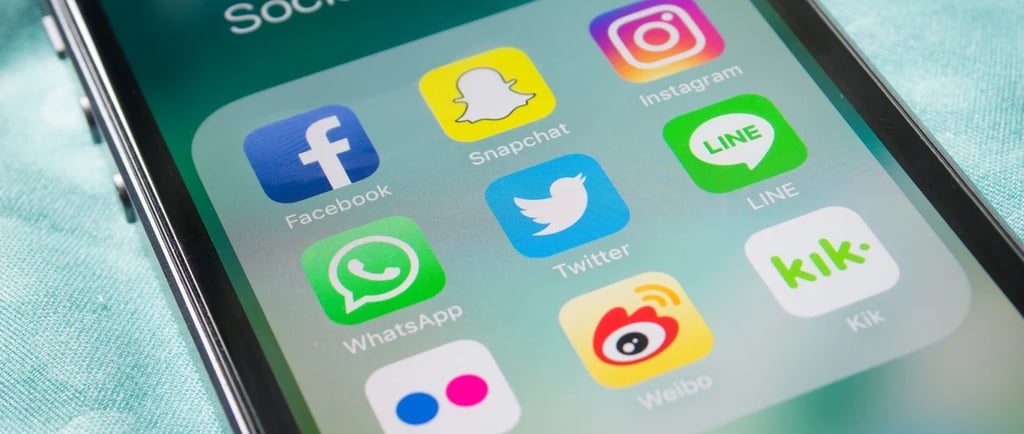The Hustle Culture Trap: Why Social Media's Definition of Success is Wrong
Social media sells toxic success myths that lead to burnout. Discover the truth about hustle culture, overnight success, and follower counts—and learn how to define real, sustainable success on your own terms.
SOCIAL


Scroll for five minutes, and you’re bombarded: "20, and a millionaire!" "Hustle 24/7!" "Get 100K followers in a week!" Social media platforms are engineered to sell a fantasy—a curated, filtered, and often completely fabricated version of success. This constant exposure creates a distorted benchmark, leading to anxiety, burnout, and a profound sense of inadequacy.
A 2023 study by the American Psychological Association linked heavy social media use to increased rates of depression and anxiety, primarily driven by these unhealthy comparisons. The "hustle culture" glorified online isn't a blueprint; it's a burnout recipe.
This article dismantles the three most pervasive and toxic lies about success sold on social media. We'll replace them with data-driven reality checks and actionable truths to help you define and achieve authentic, sustainable success on your own terms.
Lie #1: You Must Be Rich and Famous by Age 30 (The Arbitrary Deadline)
The Social Media Fantasy:
Your feed is a parade of 25-year-old crypto millionaires, teen influencers, and startup founders who "made it" before they could rent a car. The message is clear: if you haven't achieved extraordinary wealth and recognition by 30, you've failed.
The Data-Backed Reality Check:
This lie is statistically absurd and psychologically harmful. Research from the MIT AgeLab shows that most people experience their major career breakthroughs much later in life.
Vera Wang designed her first wedding dress at 40.
Stan Lee created his first hit comic, The Fantastic Four, at 39.
Julia Child published her first cookbook at 50.
Ray Kroc franchised McDonald's in his 50s.
The concept of the "overnight success" is perhaps the biggest fraud. As entrepreneur Kevin Kelly famously said, "Learn to deploy the theory of the adjacent possible: overnight success takes about ten years." Those ten years are filled with unseen failures, gradual learning, and quiet perseverance that never make the highlight reel.
The Actionable Truth: Your Timeline is Your Own
Success is not a race with a fixed finish line. It's a personal journey with a unique route and pace.
Stop Comparing: Your journey is incomparable. Unfollow accounts that trigger your comparison reflex.
Embrace a "Curiosity Mindset": Focus on learning and growth, not arbitrary milestones. Where do you want to be in 5 years? Focus on the next step toward that, not someone else's 5-year mark.
Redefine "Success": Does it mean financial freedom, creative fulfillment, family stability, or community impact? Define it for yourself.
"Success isn't a race with a finish line at 30. It's a lifelong hike where the best views often come after the steepest climbs."
Lie #2: Busyness Equals Importance (The Hustle Culture Trap)
The Social Media Fantasy:
The glorification of the grind. The 4 AM wake-up calls, the 80-hour work weeks, the "I'll sleep when I'm dead" mentality. Busyness is worn as a badge of honor, a proxy for productivity and importance.
The Data-Backed Reality Check:
This is perhaps the most dangerous lie. Chronic busyness is a recipe for burnout, not breakthrough. A World Health Organization study officially classified burnout as an occupational phenomenon, citing chronic workplace stress.
Elon Musk, often held up as a hustle icon, has also famously said, "Being busy is a form of laziness—lazy thinking and indiscriminate action." The point isn't to work more hours; it's to identify and execute on the few critical tasks that deliver 80% of the results (the Pareto Principle).
The richest and most effective people don't just work hard; they work smart. They prioritize deep work, strategic thinking, and, crucially, rest. Rest is not idleness; it's an essential component of peak performance. It's when the brain consolidates learning and fosters creativity.
The Actionable Truth: Prioritize Impact Over Activity
The goal is to be effective, not just busy.
Audit Your Time: Use a time-tracking app for a week. How much time is spent on high-impact work vs. busywork?
Embrace Strategic Rest: Schedule downtime as you would a meeting. Protect your sleep, take real breaks, and disconnect on weekends. This prevents burnout and boosts long-term creativity.
Practice Ruthless Prioritization: Ask yourself daily: "What is the ONE thing I can do today that will make everything else easier or irrelevant?" (From the book The One Thing).
Burnout isn't a badge of honor; it's a sign you believed the hustle lie. True productivity is measured in outcomes, not hours logged.
Lie #3: More Followers = More Success (The Vanity Metric)
The Social Media Fantasy:
A large, engaged following is the ultimate marker of success. It translates directly to wealth, happiness, and influence. Virality is the goal.
The Data-Backed Reality Check:
This confuses fame with fulfillment and a vanity metric with true value.
Followers ≠ Income: The influencer market is oversaturated. Nano-influencers (1K-10K followers) often have higher engagement and conversion rates than mega-influencers. Micro-influencer marketing statistics show that brands are shifting budgets toward authenticity over sheer reach.
Fame ≠ Happiness: Numerous studies and heartbreaking stories show that internet fame is often linked to severe anxiety, depression, and a loss of privacy.
Impact > Influence: Some of the world's most successful people—scientists, researchers, specialized engineers, authors—are not "viral." Their success is measured by their tangible impact on their field, not their follower count.
The Actionable Truth: Build Skills, Not Just a Following
Focus on building a valuable, real-world skillset that people will pay for.
Monetize Skills, Not Likes: Instead of chasing virality, invest time in learning high-income skills like copywriting, coding, sales, or digital marketing. These skills build a career; followers are fickle.
Nurture a Niche Community: A small, loyal community of 1,000 true fans is infinitely more valuable than 100,000 disengaged followers.
Define Your "Real World" Metric: Is it revenue? Clients served? Products shipped? Books sold? Focus your energy there.
Followers are a byproduct of success, not the cause of it. Build a real business, not just a digital audience.
The Bottom Line: How to Define Real Success in a Noisy World
Social media is a powerful tool for connection and inspiration, but it's a terrible benchmark for your life. The algorithm is designed to sell a dream because insecurity drives engagement and clicks.
Real success is quieter, slower, and far more sustainable. It’s not a destination to reach by a certain age but a feeling built through:
Autonomy: Doing work you love on your own terms.
Mastery: The quiet confidence that comes from being genuinely good at something valuable.
Purpose: Knowing your work has a positive impact on others.
Well-being: Having the time and energy for health, relationships, and hobbies.
